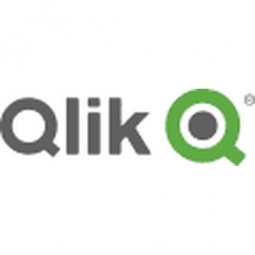Download PDF
Pikolinos Speeds Up Decision Making With QlikView
Technology Category
- Analytics & Modeling - Real Time Analytics
Applicable Industries
- Consumer Goods
- Retail
Use Cases
- Inventory Management
- Supply Chain Visibility
Services
- System Integration
The Challenge
Pikolinos Intercontinental, a leader in the Spanish footwear manufacturing industry, needed a business intelligence (BI) tool to help managers make decisions based on information shown in scorecards which, in turn, brought together information from different systems. The company quickly opted for QlikView because it met all its requirements. Amongst the criteria that prompted the company to choose QlikView, Ortiz points to “its fast implementation time compared with other BI tools and its ease of use, delivered through intuitive, visual display of data.”
About The Customer
Pikolinos Intercontinental is one of the leaders in the Spanish footwear manufacturing industry. It is part of Grupo Pikolinos, a group of footwear and accessories companies including Martinelli, Pikostore, Pies Cuadrados, and Vabene. At present, it exports 80 per cent of its products abroad, principally to the U.S., France, Germany, Italy, and Russia. Set up in 1984, Pikolinos’s guiding principle has always been to focus on design, quality and originality to produce unique shoes. Since its inception, the company’s philosophy has been to combine this concept with use of the latest technology, providing customers with top quality footwear. Pikolinos is based in the town of Elche in Alicante and has around 100 employees. In 2009 it posted profits of €3 million with turnover of €60 million.
The Solution
QlikView deployment at Pikolinos has speeded up decision making in all areas and provided greater control of key indicators. These include among others sales, warehouse movements, performance targets, materials required, and invoicing. The application was deployed with Windows Client and consolidates SQL Server, Excel, and Access databases, and different flat files. Twenty-five users are working with QlikView, including senior managers and area managers, handling a total of 140GB of entries.
Operational Impact
Related Case Studies.
.png)
Case Study
Improving Vending Machine Profitability with the Internet of Things (IoT)
The vending industry is undergoing a sea change, taking advantage of new technologies to go beyond just delivering snacks to creating a new retail location. Intelligent vending machines can be found in many public locations as well as company facilities, selling different types of goods and services, including even computer accessories, gold bars, tickets, and office supplies. With increasing sophistication, they may also provide time- and location-based data pertaining to sales, inventory, and customer preferences. But at the end of the day, vending machine operators know greater profitability is driven by higher sales and lower operating costs.

Case Study
Improving Production Line Efficiency with Ethernet Micro RTU Controller
Moxa was asked to provide a connectivity solution for one of the world's leading cosmetics companies. This multinational corporation, with retail presence in 130 countries, 23 global braches, and over 66,000 employees, sought to improve the efficiency of their production process by migrating from manual monitoring to an automatic productivity monitoring system. The production line was being monitored by ABB Real-TPI, a factory information system that offers data collection and analysis to improve plant efficiency. Due to software limitations, the customer needed an OPC server and a corresponding I/O solution to collect data from additional sensor devices for the Real-TPI system. The goal is to enable the factory information system to more thoroughly collect data from every corner of the production line. This will improve its ability to measure Overall Equipment Effectiveness (OEE) and translate into increased production efficiencies. System Requirements • Instant status updates while still consuming minimal bandwidth to relieve strain on limited factory networks • Interoperable with ABB Real-TPI • Small form factor appropriate for deployment where space is scarce • Remote software management and configuration to simplify operations

Case Study
How Sirqul’s IoT Platform is Crafting Carrefour’s New In-Store Experiences
Carrefour Taiwan’s goal is to be completely digital by end of 2018. Out-dated manual methods for analysis and assumptions limited Carrefour’s ability to change the customer experience and were void of real-time decision-making capabilities. Rather than relying solely on sales data, assumptions, and disparate systems, Carrefour Taiwan’s CEO led an initiative to find a connected IoT solution that could give the team the ability to make real-time changes and more informed decisions. Prior to implementing, Carrefour struggled to address their conversion rates and did not have the proper insights into the customer decision-making process nor how to make an immediate impact without losing customer confidence.

Case Study
Digital Retail Security Solutions
Sennco wanted to help its retail customers increase sales and profits by developing an innovative alarm system as opposed to conventional connected alarms that are permanently tethered to display products. These traditional security systems were cumbersome and intrusive to the customer shopping experience. Additionally, they provided no useful data or analytics.







